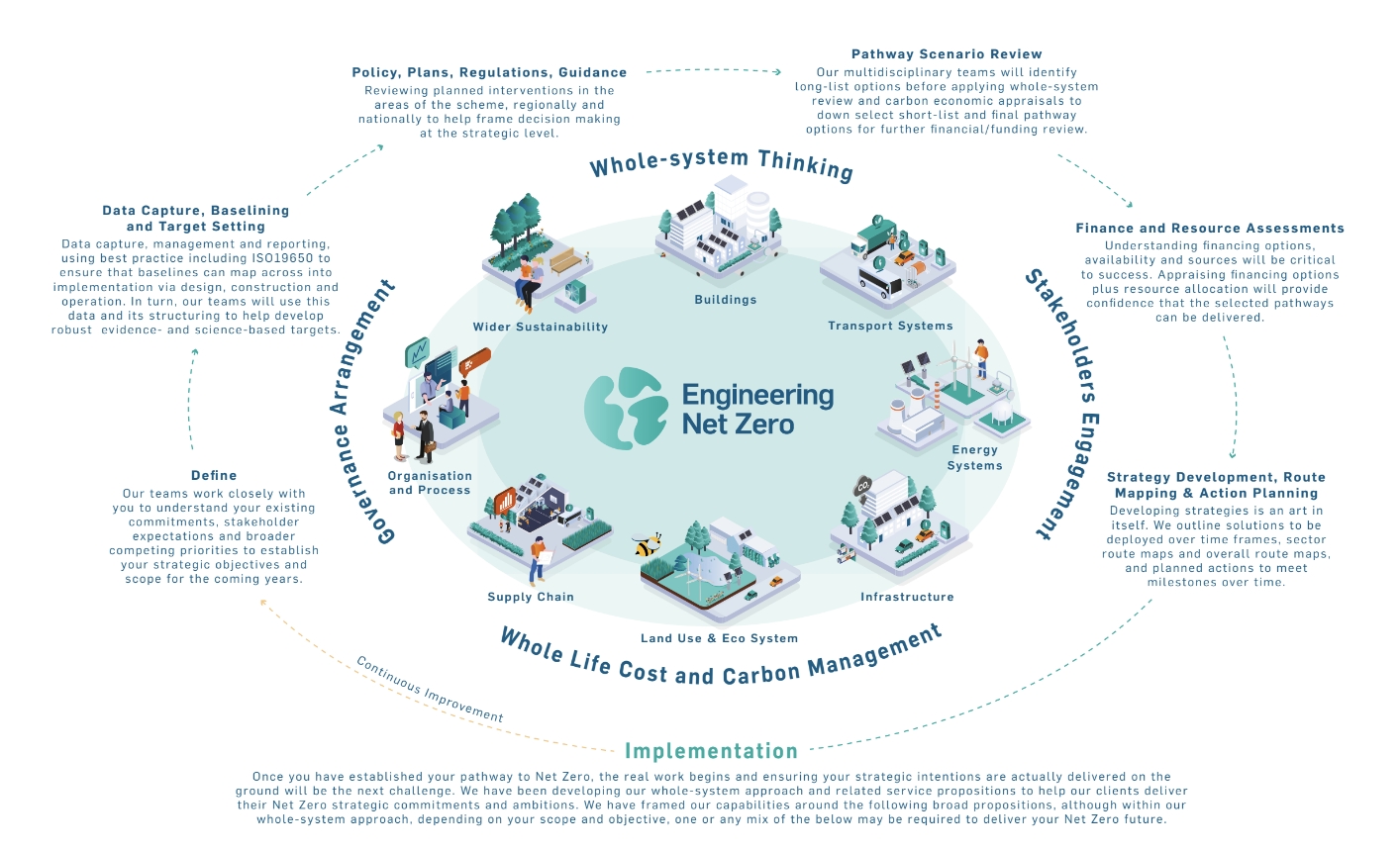Strategic Carbon Advisory
With carbon reduction now clearly on the global agenda, businesses and public bodies are increasingly adjusting their decision making, placing climate front and center.
However, in the modern era, carbon reduction is one of many competing and complex priorities.
We’re here to support and work together to not only rise to the challenge, but to identify the opportunities, with strategic planning and implementation. Our Engineering Net Zero approach can clarify and optimize the pathway to Net Zero and deliver pragmatic, cost-effective solutions, tailored to your business goals.
We base our effective and innovative decarbonization strategies on 4 key questions:
- Do we understand the scope? Defining what Net Zero means for your organization or project from the start. Identifying the factors we can directly control and those we can indirectly influence.
- Do we have the right data? Having access to the data needed to baseline and the ability to continuously measure and monitor performance.
- Is our solution cost-effective, pragmatic and future-facing? Solutions must be resilient, rooted in pragmatic thinking and informed through a deep understanding of the asset or operation for carbon reduction, as well as the system these sit within.
- Is help required in accessing finance and funding? For many private and public organizations, accessing finance will be a key factor. We’re here to assist with applications, proposals and calculating associated payback criteria.

This is a substantial challenge, which, when addressed, uncovers a wide variety of interrelated issues and challenges. Strategic priorities will be focused on:
- Accelerating the shift to low- or zero-carbon modes, especially for local movements – electric vehicles, active travel and lowcarbon, mass-transit solutions
- Decarbonising road traffic through a rapid transition to electric vehicles
- The decarbonisation of longer-distance passenger and freight movement, with greater use of electrified railways, and new technology for heavy goods vehicles, planes and shipping
- Encouraging behaviours that rapidly change travel patterns, reducing carbon because we use zero-carbon modes, make shorter or less frequent trips, or don’t make trips at all.
Alongside these strategic challenges there are critical issues that need to be addressed on how we plan, build and operate our transport system, including:
- Understanding the current carbon baseline, targets and Net Zero pathways
- Driving Net Zero thinking into all aspects of infrastructure planning, design, construction and operation
- Stress-testing large infrastructure projects and programmes to check alignment with Paris Agreement
- How the transport system adapts to rapid electrification and shift to low-carbon modes
- Building consensus across all stakeholder groups about the changes likely to be required to how our transport system operates
- How to attract and secure funding and financing, especially post-COVID.
These challenges are significant but so too are the opportunities. However, unlocking them will require leadership and funding from government, with policy certainty that enables the private sector to invest with confidence in the infrastructure and technologies needed to decarbonise the transport systems.
For those who lean in and embrace this challenge there are substantial opportunities, with the opportunity to become a world leader in decarbonising transport systems that can deliver a cleaner and sustainable society








